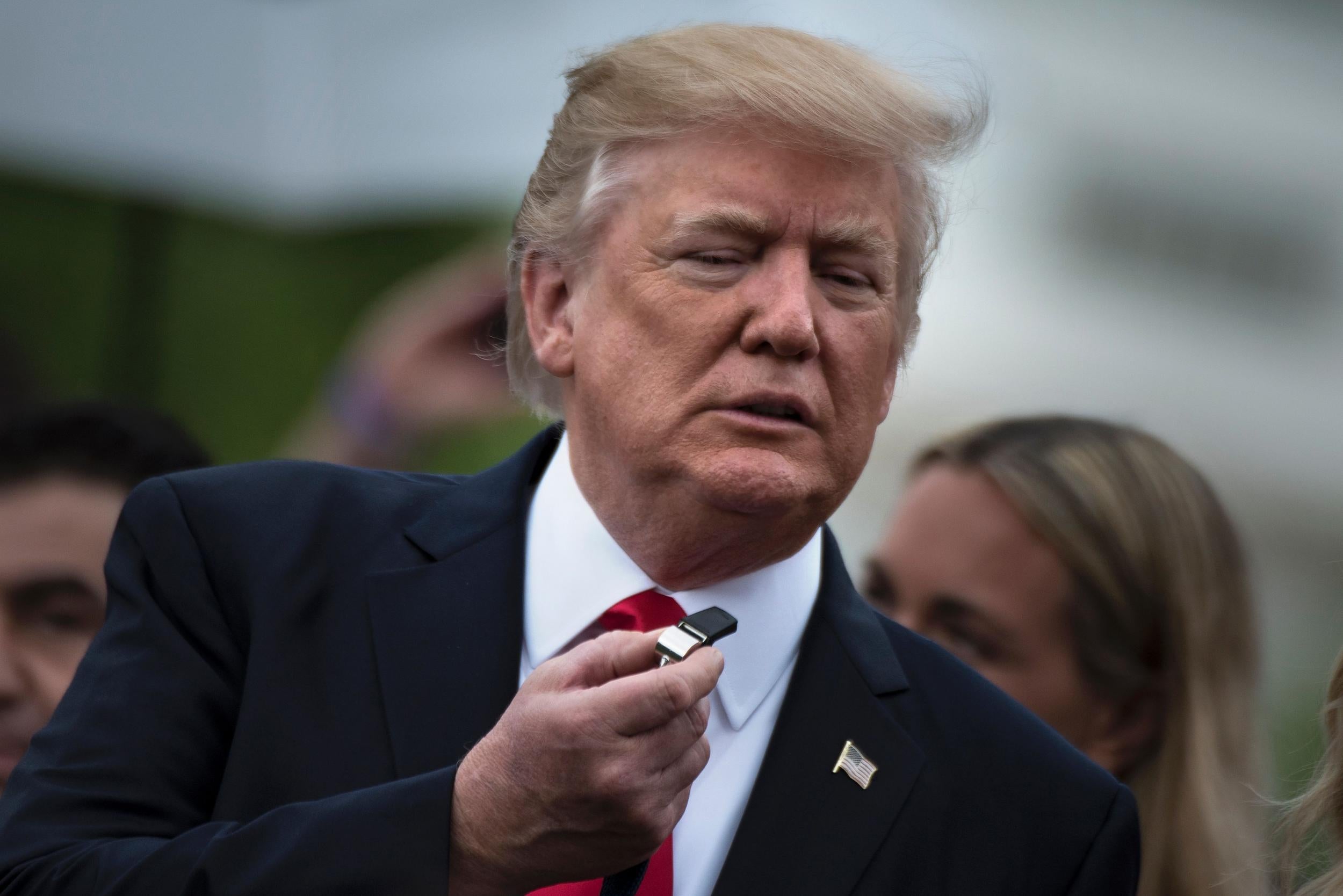Donald Trump administration orders review on lifting Iran sanctions despite compliance with nuclear deal
Secretary of State Rex Tillerson says Iran remains ‘a leading state sponsor of terror’ in sign US is looking to ratchet up pressure on Tehran in other ways

Your support helps us to tell the story
From reproductive rights to climate change to Big Tech, The Independent is on the ground when the story is developing. Whether it's investigating the financials of Elon Musk's pro-Trump PAC or producing our latest documentary, 'The A Word', which shines a light on the American women fighting for reproductive rights, we know how important it is to parse out the facts from the messaging.
At such a critical moment in US history, we need reporters on the ground. Your donation allows us to keep sending journalists to speak to both sides of the story.
The Independent is trusted by Americans across the entire political spectrum. And unlike many other quality news outlets, we choose not to lock Americans out of our reporting and analysis with paywalls. We believe quality journalism should be available to everyone, paid for by those who can afford it.
Your support makes all the difference.Officials from US President Donald Trump’s administration have notified Congress that Iran is complying with the terms of the historic 2015 nuclear deal negotiated by his predecessor Barack Obama - but that the current sanctions relief for the Islamic republic will still be reviewed.
While the relief agreement remains in place, “Iran remains a leading state sponsor of terror, through many platforms and methods,” Secretary of State Rex Tillerson wrote in a letter to House Speaker Paul Ryan late on Tuesday.
The National Security Council-led interagency review will evaluate whether it “is vital to the national security interests of the United States,” he added.
The certification of Iran's compliance, which must be sent to Congress every 90 days, is the first issued by the Trump administration. The deadline for this certification was midnight.
Fresh sanctions - which would reflect Mr Trump’s desire to fulfil his campaign promise about “being tough on Iran” - were rumoured in February, when they were viewed as a possible punitive measure after Tehran tested a mid-range ballistic missile.
The administration said that Iran was “on notice” after what Tehran eventually said was a non-nuclear ballistic missile test, which did not break the terms of the agreed curbs on its nuclear programme.
Relations between Tehran and Washington soured quickly since Donald Trump took office. The new president immediately set about imposing new financial penalties on individuals related to terror-related offences, and imposed a travel ban for citizens of Iran and six other Muslim countries, which was later defeated in several courts.
In retaliation, Iran curtailed all travel visas for Americans for an indefinite amount of time, and the Central Bank announced the country will no longer use the US dollar for official statistics or financial reporting
The president’s campaign trail proposal to scrap the nuclear deal altogether - which lifted the international sanctions which have crippled Iran’s economy in exchange for curbs on its nuclear weapons programme - was widely criticised for endangering an agreement which former Secretary of State John Kerry said “made the world a safer place.”
While Tuesday’s notice to Congress suggests that Mr Trump may now agree with the International Atomic Energy Agency’s findings, it is thought the administration may be looking at other ways to ratchet up pressure on Tehran.
The US maintains a separate sanctions list unrelated to nuclear issues which includes terrorism-related offences, human rights abuses, and for backing Syrian President Bashar al-Assad’s government.
The West began to believe Iran was secretly pursuing a nuclear weapons programme under former Prime Minister Mahmoud Ahmedinejad, which led to the severe international financial penalties during his time in office between 2005 - 2013.
He remains a controversial figure in Iran, where he surprised many last week by announcing his decision to run in May’s presidential election despite Supreme Leader Ayatollah Ali Khamenei’s recommendation he stays out of the race.
In an interview with Al Jazeera broadcast on Wednesday, Mr Ahmedinejad said he was capable of “bringing the country together”, and implored other Middle Eastern nations to work with one another rather than against, particularly in regards to the Syrian conflict.
“All countries should change their policies, including Saudi Arabia, Turkey, Qatar, Kuwait, UAE and Bahrain, as well as Iran, Oman and Syria.
“We all have to do this by changing our current foreign policy. We have to sit with each other. Why are we fighting each other? What is the reason?” he said.
Agencies contributed to this report
Join our commenting forum
Join thought-provoking conversations, follow other Independent readers and see their replies
Comments